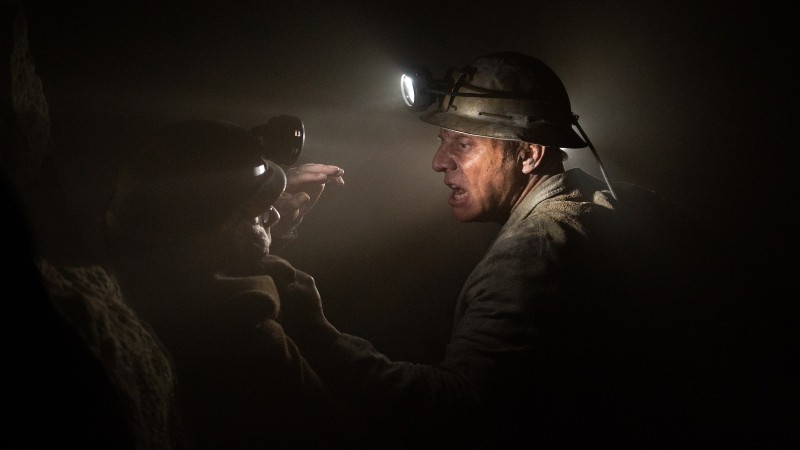Acclaimed film-making duo Kamila Andini and Ifa Isfansyah take a calculatedly side-on strategy to Indonesian societal historical past in “Cigarette Lady,” a brand new Netflix collection that releases on Nov.1 and which premiered its first episodes on the Busan Worldwide Movie Competition earlier this month.
Beginning with a rich household about to lose its growing old patriarch in 2001, the collection makes use of flashbacks to the Sixties to uncover not solely the origins of the household’s natural cigarette or ‘Kretek’ fortune, but in addition the hidden romance underlying it. And it highlights the overbearing and solely slowly altering societal pressures positioned on girls, from excessive and low ranks, at the same time as Indonesian politics and authorities underwent tectonic shifts.
Forward of the Busan premiere Andini and Isfansyah advised Selection how their lush and romantic therapy is each a product of adjusting society and a method of dealing with as much as current Indonesian historical past.
Watch the brand new trailer right here.
How do you pitch the present, as a romance, a thriller or as a historical past lesson?
Andini: This ambiguity is without doubt one of the issues we beloved concerning the story. It’s primarily based on a novel. It’s really a romance story, but it surely’s a lot greater than that. From this romantic story, we get to see Indonesia’s layers, by means of the Kretek cigarette business, which is without doubt one of the largest industries in Indonesia.
The historical past is kind of advanced, there are a whole lot of characters transferring from one place to a different. And the vary of years goes from Sixties to 2001, spanning two generations. And there’s additionally a number of layers of our socio-political historical past, as effectively. There’s a whole lot of issues flowing by means of this epic romance story. We wished the viewers to be engaged all through [enabling them to be] reflective of those occasions and conditions.
The place did your involvement start?
Isfansyah: In about 2011 or 2012, I met Ratih Kumala, the creator of the underlying novel. She’d simply completed it, however not but printed the e-book. She requested me to learn the draft. I learn it through the Hong Kong movie competition the place Kamila was working and I had time on my palms. I used to be so impressed with the story that I known as Ratih and mentioned, ‘I need this. Don’t give this to anybody else.’
Initially, I noticed this as one thing for myself to direct. And as a characteristic movie. I’d simply completed “The Dancer.” And I began to develop the script. It was not simple, as a result of within the unique novel the story stretches over three eras: colonialism, Communism within the Sixties and on to 2001.
I spotted that it may not be simple as a characteristic movie. And likewise that it may not simple to finance. The business was not developed like it’s now. So, it was my dream challenge, but it surely turned frozen.
Then the platforms are available. [Executive producer] Shanty Harmayn known as me and requested me about doing “Cigarette Lady” as a collection. And from 2018 onwards it was in movement once more. I questioned whether or not I needs to be directing or whether or not Kamilia and I ought to work collectively. I do know her strengths and worth her girl’s perspective.
This present continues a recurring theme of your filmography with girls within the forefront.
Andini: It’s a luxurious for me, whereas creating my first collection, that I’m nonetheless capable of really current my very own representing girls on display. I’ve various room for creativity and imaginative and prescient. I’ve identified of the novel all this time.
One of many strengths of the novel is that this proficient girl within the Sixties [who secretly uses her skills to devise new flavors for the Kretek cigarettes]. I didn’t even find out about that career earlier than. I need to painting this character not solely as girl from the previous, however as a girl who’s related at this time.
Is the kretek cigarette business basically fascinating in itself?
Andini: We [as a couple] don’t smoke. So, it was additionally one of many questions that we thought of when deciding to tackle this challenge. Being Indonesian, we’re very conscious of this business. However few folks know a lot really about its historical past. Lots of issues modified because of the political state of affairs. It has turn out to be an enormous business, but it surely was very dwelling grown.
We realized that our nation could be very agricultural nation. Tobacco is from our land. And it is a dwelling for many individuals. A few of us have outgrown that. However like rice and occasional, tobacco is without doubt one of the textures of Indonesia.
This can be a narrative of feminine empowerment. Ladies have been solely allowed to work in cigarette factories doing hand rolling – no different position. So [the central character] Dasiyah needs to go away.
Are movie and TV in Indonesia getting higher at analyzing the nation’s very difficult politics and typically very violent previous?
Andini: Ifa and I see ourselves as a part of the youthful technology who need solutions concerning the issues that occurred, I believe you will need to be capable of speak about it as a nation and that the youthful technology don’t forget.
In peace time, we’re all the time listening to about Indonesia’s heroes or biographies about folks going from nothing to success. However we by no means get to see what really occurred up to now. So, this sort of story and challenge is kind of uncommon. Particularly for its concentrate on on a regular basis life and conflicts from completely different instances.
Is it mandatory that historical past be proven by means of the lens of fiction? Can’t it’s introduced as documentary or a reconstruction of precise occasions?
Isfansyah: I believe that with youthful audiences there are extra potentialities. However many tales should concentrate on the up to date. And these items depend upon who’s working the nation and, you already know, we now have election early subsequent 12 months.
Andini: Additionally it is associated to our tradition of watching. In Indonesia, we don’t have an enormous tradition of creating and watching documentaries about ourselves. We’re the product of lengthy years of New Order, throughout which we weren’t all the time superb at dealing with actuality.
In Indonesia, we’re not superb at taking criticism. And, so, nobody is allowed to criticise one other [and cause them to lose face]. That has a huge impact on reveals and storytelling. It’s very arduous for Indonesians to have a look at one thing very face on.
How do you see the Indonesian business altering below the affect of streaming firms?
Andini: Reveals apart from characteristic movie [have emerged]. Completely different [story] languages are rising. Audiences are more and more being put first. [There is an increasing emphasis] on high quality, from story to cinematography. Audiences need to see worth. I really feel the room not solely to truly create, but in addition to problem myself, to interact the viewers. It’s new once more. And it’s very thrilling.
Isfansyah: Streaming has opened extra potentialities for manufacturing, modified the variety of tasks and altered storytelling [grammar]. I additionally run a movie college and a movie competition, and I actually see rising competences and experimentation [..] We want the area for younger filmmakers to discover.



